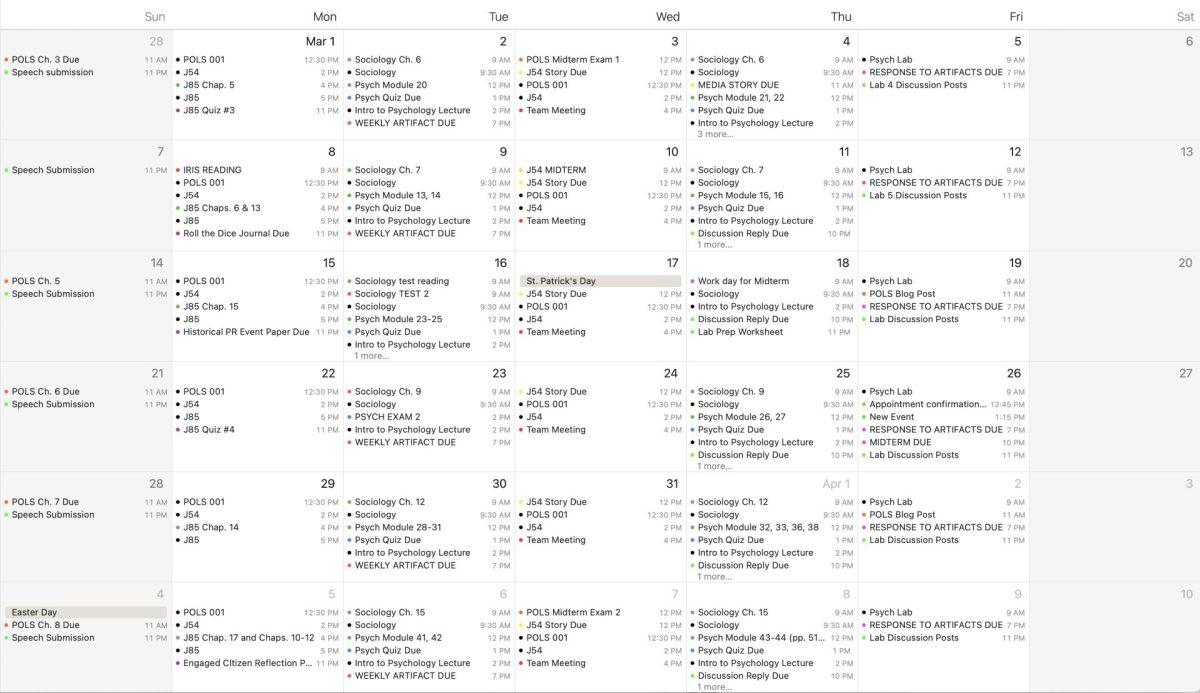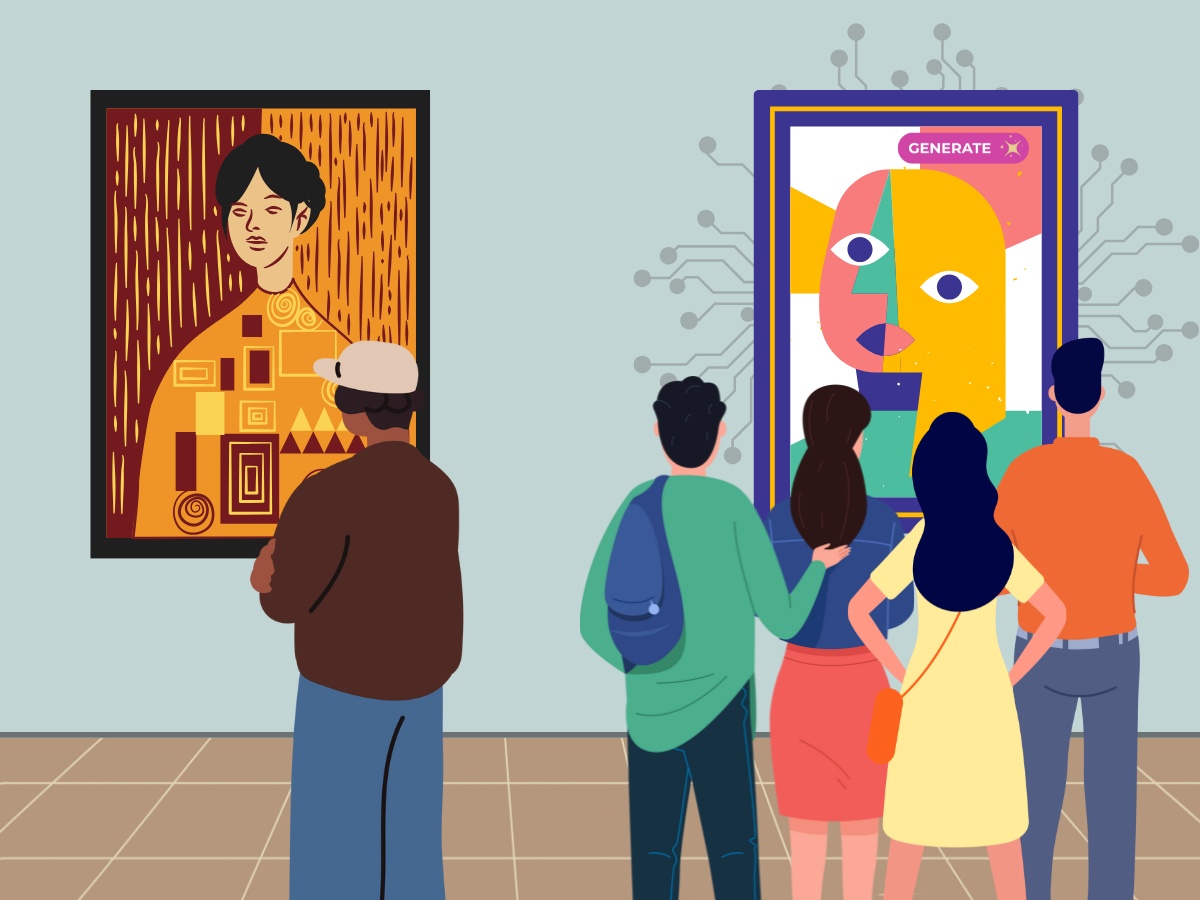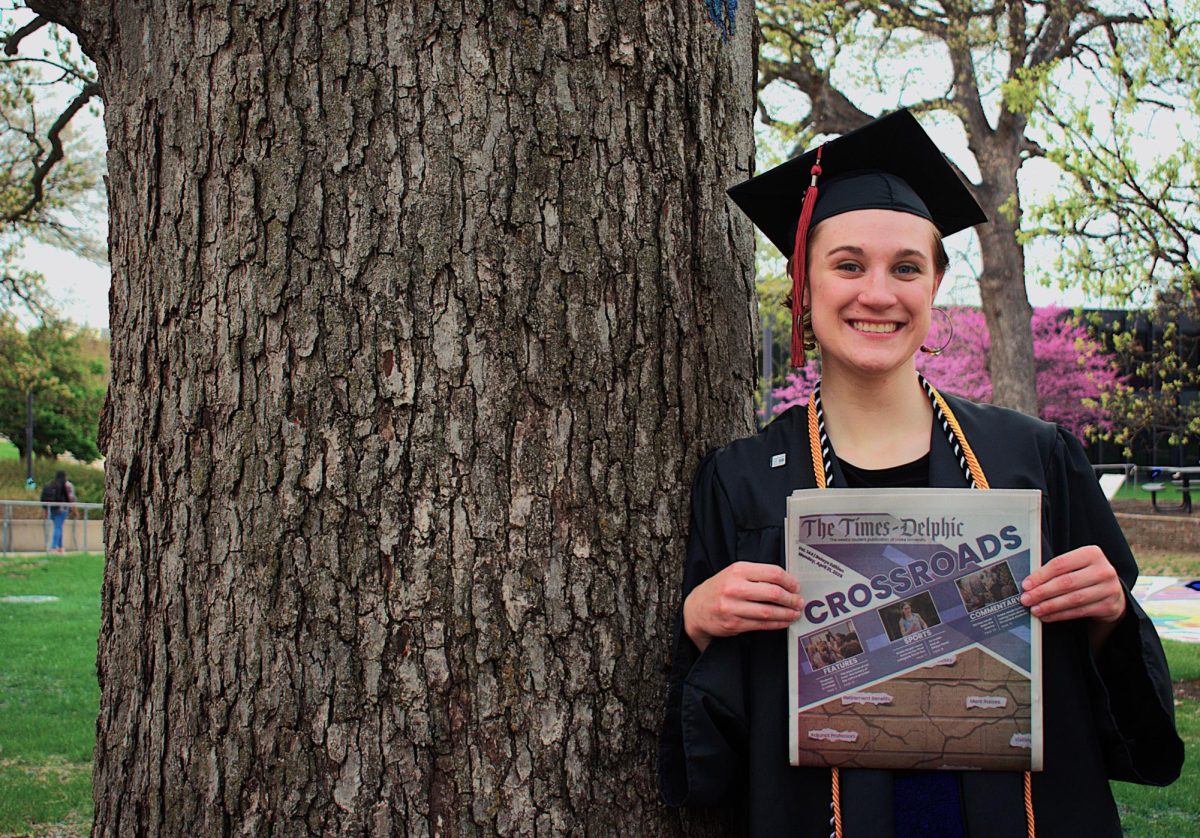The term “Drake Busy” is broadly used to characterize the strenuous combination of courses, extracurricular activities, studying and internships or jobs commonly held by a Drake student. With both faculty and a student body that values school involvement in both academia and extracurricular interests, it comes as no surprise that the majority of Drake students feel overwhelmed with the undertakings they pursue each semester.
The introduction of “Drake Balanced” was a collective effort for students to manage their academic and personal/social lives. Many professors preface courses by putting mental health and self-care at the forefront of their introductions. Additionally, various Drake organizations designate yoga, meditation, games, crafts and other stress-free meetings to further encourage the replacement of “Drake Busy” with “Drake Balanced.”
However, the reality of “Drake Balanced” fails when considering the pragmatism of Drake students’ lives.
As a first-year student at Drake, I was fed with encouragement and support from orientation presenters, peer mentors, academic advisors and every club or organization I joined. I was put in contact with upperclassmen and faculty, who told me that they would be available throughout any distress. I felt welcomed by faculty and students alike, and I was eager to start classes.
Promptly following the start of classes, I understood the implications of endorsing an all-engrossing schedule.
I acknowledge that my understanding of “Drake Busy” is short-lived and fragile and that the phrase is more specifically applicable to second, third and fourth-year students. Three weeks into living on campus, I have not fully experienced the pressure of daunting midterms, exams or even the discerning embodiment of “Drake Busy.”
Nevertheless, three weeks into living on campus, I have felt more than overwhelmed by the workload placed upon me. Every professor requires 40 pages of reading. The extracurricular activities I signed up for are much too demanding, and the attainability of balance is slipping further away. The self-care and mental health awareness preached by every professor and organization were nullified by the hours of work they assigned per class. “Drake Balanced” cannot be achieved given this level of school involvement.
However, when I reconsidered the meaning of “Drake Balanced,” it dawned on me that the expectation for me to be a successful student was continual, and the prioritization of my mental health did not excuse my lack of fulfilled obligations in classes and extracurriculars I had chosen to be part of.
The reality is that “Drake Balanced” was established not to promote the alleviation of workload but to clarify the importance of work in addition to personal and mental health care. “Drake Busy” does not define an unreasonable excessive sum of assignments, readings and obligations expected by a student. The workload of an average Drake student is consistent with their voluntary involvement in activities and also indicative of future environments most Drake students will proceed into.
The tension between academic expectations and desire for personal well-being is a common theme in many educational institutions, not just specific to Drake. The reality is that “Drake Busy” isn’t going anywhere.
However, I think it is almost counterproductive for students to attend college and not pursue their areas of interest. Drake is a small school that promotes the utmost involvement in leadership positions, academia and exploration of any interest.
Thus, “Drake Balanced” does not disagree with “Drake Busy,” but instead agrees with and adds to it. The reality is that no matter how much students or faculty work to address the problems with “Drake Busy,” it will be ever-present given the essential expectation of passion, involvement and success by every student at Drake.







